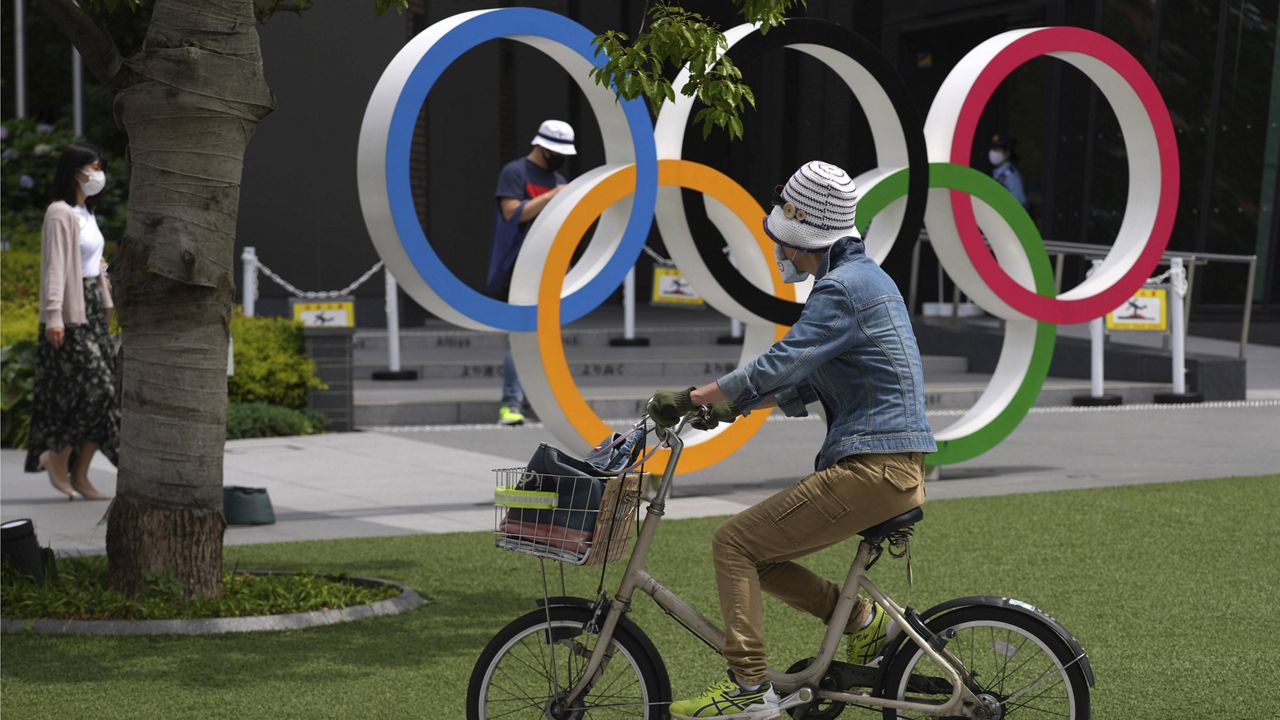With 50 days to go before the start of the Tokyo Olympics, officials are insisting the games will go on.
What You Need To Know
- Tokyo Olympics President Seiko Hashimoto told BBC that she believes “the possibility of these games going on is 100%”
- Whether to move forward with the event has become a controversial topic in Japan, where much of the country is under a state of emergency due to COVID-19
- On Wednesday, Shigeru Omi, Japan’s top coronavirus virus adviser, said it is “not normal” to host the Olympics during a pandemic and called on organizers to scale “them down as much as possible"
- Meanwhile, about 10,000 of the 80,000 unpaid volunteers who had been slated to work during the Olympics and Paralympics have backed out
Whether to move forward with the event has become a controversial topic in Japan, where much of the country is under a state of emergency due to COVID-19. Protesters have called for the games to be scrapped, while a poll conducted by the newspaper Asahi Shimbun last month found that 83% of people there want the games postponed or canceled.
On Wednesday, Shigeru Omi, Japan’s top coronavirus virus adviser, said it is “not normal” to host the Olympics during a pandemic and called on organizers to scale “them down as much as possible.” The games were to be played last summer but postponed a year because of the pandemic.
Meanwhile, about 10,000 of the 80,000 unpaid volunteers who had been slated to work during the Olympics and Paralympics have backed out.
Organizers said some dropped out because of worries about COVID-19. Few volunteers are expected to be vaccinated since most will have no contact with athletes or other key personnel.
“We have not confirmed the individual reasons," organizers said in a statement. “In addition to concerns about the coronavirus infection, some dropped out because they found it would be difficult to actually work after checking their work shift, or due to changes in their own environment.”
Organizers said the loss would not affect the operations of the postponed Olympics.
Tokyo Olympics President Seiko Hashimoto told BBC that she believes “the possibility of these games going on is 100%.”
But Hashimoto said organizers are preparing for the possibility that an outbreak could force officials to ban fans entirely from events. Currently no international fans will be allowed.
"We are trying to create as complete a bubble situation as possible so we can create a safe and secure space for people who come in from overseas as well as people who are in Japan, the residents and citizens of Japan,” she said.
Hashimoto acknowledge that “the Japanese people are feeling very insecure and at the same time probably feel some frustration at us talking about the Olympics, and I think that is giving rise to more voices opposing having the games in Tokyo.”
Japan is coming down from its fourth wave of the pandemic, but restrictions remain in many places. The country recorded 3,306 new COVID-19 infections and 113 related deaths Tuesday, according to Johns Hopkins Hospital.
Only about 2-3% of Japan’s general population has been fully vaccinated in a very slow rollout that is just now speeding up. Conversely, the International Olympic Committee expects at least 80% of athletes and residents of the Olympic Village to be fully vaccinated.
Fifteen thousand athletes from 200 countries are slated to travel to Japan for the Olympics, some of whom have already begun to arrive.
On Thursday, the Japanese soccer association said a member of the Ghana team had tested positive upon arrival in Tokyo. The player was separated from the team and placed in quarantine.
Earlier in the week, soccer players from Jamaica were unable to go to Japan because of issues with coronavirus testing. They were to have played the Japanese national team in a friendly.
The Associated Press contributed to this report.



